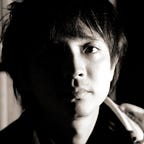https://www.metmuseum.org/art/collection/search/437654Fig. 7. “Circus Sideshow” with a diagram of Seurat’s compositional grid
Decentralized Autonomous Organization (DAO) is emerging in the world. While the technological infrastructure that makes DAO possible is now available, the ideological and political-philosophical significance of DAO is not well known to us.
Why do people need DAO?
Is there anything that DAO can only realize?
Intuitively, DAO would be like an enhanced version of a stock company, with minor middleman exploitation and management costs, more flexible financing, and increased rights for the workers. However, perhaps, these are something that a more sophisticated joint-stock company or consumer cooperative could do.
On the flip side, DAOs, by comparison, have some inferiorities to centralized organizations, such as rapid decision-making and accelerated innovation brought about via the “dictatorship” of talented individuals. Therefore, the significance of the DAO’s existence will be limited unless it has something that centralized organizations cannot do.
Recently, I had a chance to re-read “The Structure of World History” and “The Origin of Philosophy” by Karatani Karatani.
In these books, Karatani deals with philosophy and social structure simultaneously. “What is good? What is happiness? “Which should take precedence, communitarian values or liberties? These are common types of political philosophy and ethics agendas. However, he does not analyze concepts like “goodness” or “happiness.” Instead, he examines the historical and social structural assumptions that enabled certain political-philosophical value judgments.
By analyzing political philosophy from the perspective of social structure, it is possible to avoid entering into endless Scholastic debates on questions such as “What kind of happiness should be prioritized?”. Instead, it traces the junction of society and philosophy: the transition of political and ethical value judgments that people “naturally” accept before philosophical discussions.
Their scale and abstractness characterize these works.
Many studies examine in great detail how certain philosophical concepts correlate with historical circumstances, narrowly limiting the time and place. However, only a few provide a bird’s eye view of world history and philosophy. Hegel’s “Philosophy of History,” Marx’s “Capitalism,” and Deleuze Guattari’s “Capitalism and Schizophrenia” are such works.
In this series of essays, keeping Karatani’s argument in mind, I will conduct a thought experiment on the “function” of Socrates as described by Karatani and “examples of what only the DAO can do” in the contemporary context of fake news, positional talk, and anti-intellectualism.
Text: Asaki NISHIKAWA
